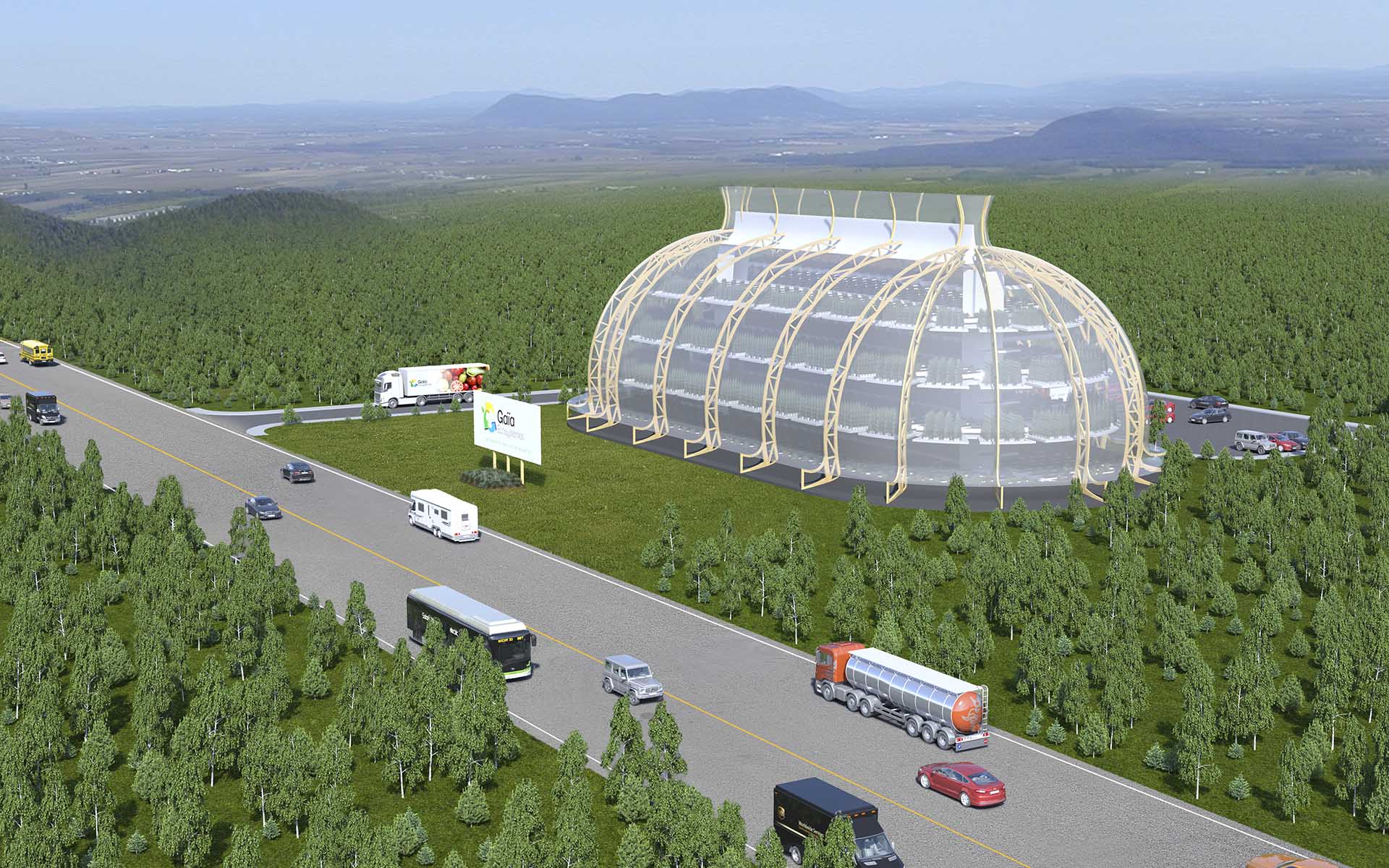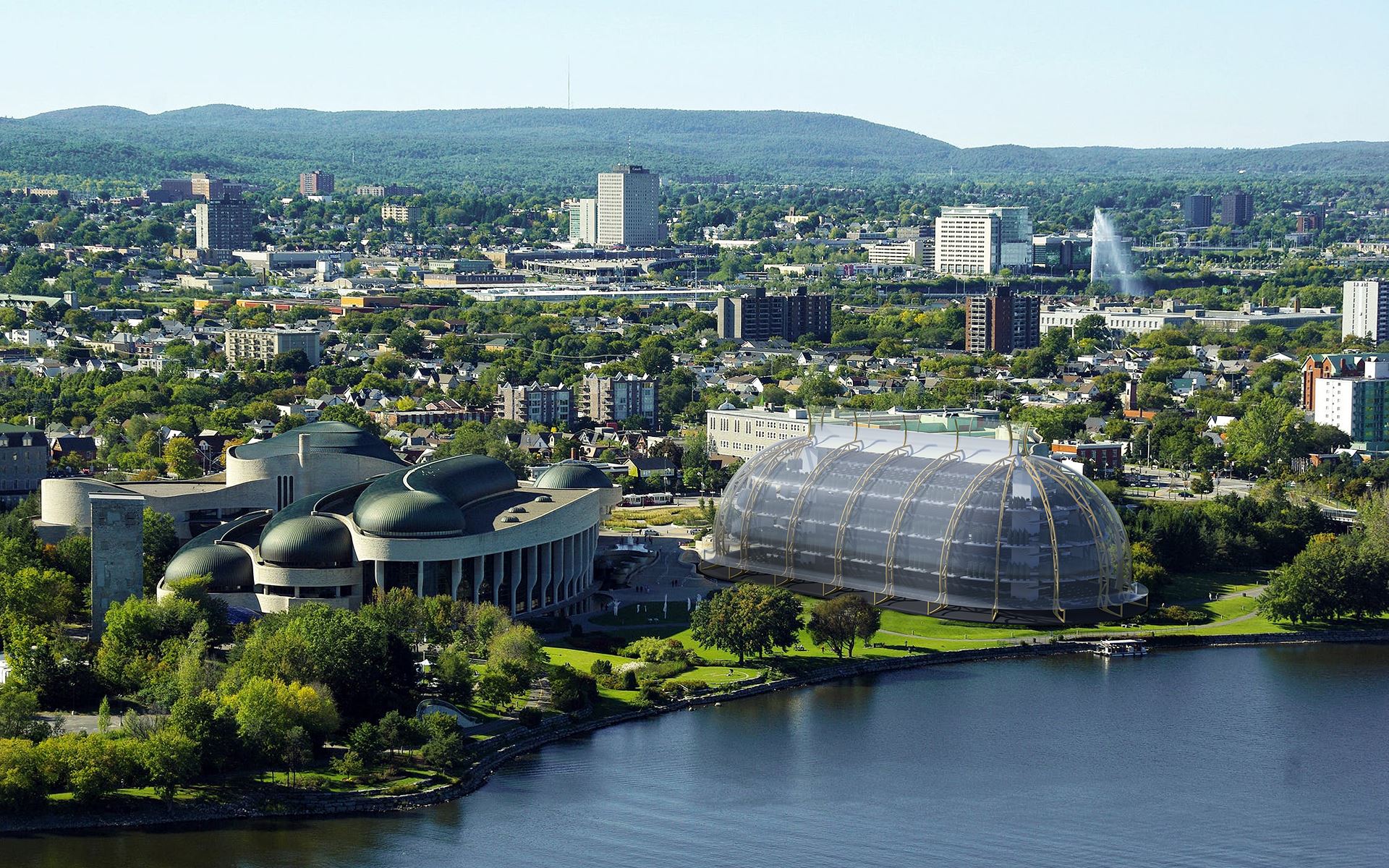Gaïa Ecosystems
Gaia Ecosystems Inc. specializes in the modeling and design of energy-efficient structures optimized for high-density urban agriculture.
Our flagship project is a multi-partner realization of large, multi-level, innovative greenhouses, particularly profitable and designed for an urban and peri-urban environment whatever the climate.
This new model of sustainable proximity agriculture is the result of Gaïa Ecosystems Inc. vision to contribute to the food self-sufficiency of urban populations.
Industrial agriculture
- Level of saturation reached in terms of production worldwide.
- Heavy use of pesticides and chemical fertilizers.
- Pollution of soils, lakes, rivers, oceans and ecosystems.
- Consumption of 30% of the fossil energy used worldwide.
- Significant production of CO2 emissions.
Climate change
- Farmland is affected by climate change.
- The ability to support local people is eroding.
- The countryside is gradually deserted for cities.
- Climate change will worsen global poverty.
- Most climate change will persist for many centuries.
Urbanization
More than 80% of the population will live in the big cities in the near future. This number will continue to increase in the coming decades. Temperature increases and extreme variations, altered patterns of precipitations and water scarcity will prevent agriculture as we know it today, in many regions of the world.
People will leave the countryside farms that are unable to support them, in favor of cities. A new approach is urgently needed to adapt to climate change in order to contribute to the food sovereignty of cities around the world.
Gaïa Ecosystems
Domes Project
We have developed a new concept of very large energy-efficient multi-level greenhouses able to withstand extreme temperatures and winds: Gaïa Ecosystems Domes (GED). A GED allows year-round production of large quantities of organic root vegetables, leafy vegetables and herbs. Local production of tasty organic vegetables at affordable prices will be made available to a local population with little packaging and limited transport.
This concept of energy efficient greenhouses is a big step forward compared to today's conventional greenhouses which cannot be installed in cities because land spaces required are much too large and expansive. The multi-storey concept of the GED is the solution for high-productivity urban farming because it utilizes minimum footprint, maximum solar radiation, minimum energy and a net-negative GHG structure that contributes to a significant CO2 reduction compared to fields’ cultivation or even compared to the best available greenhouses.
Unique and profitable
- Energy-efficient eco dome greenhouse having up to 20 floors.
- Supported by a durable laminated wood structure of great aesthetics.
- Geometrically optimized structure to reduce energy consumption by a factor of 50% to 70%
- Designed for installation directly in or around cities.
- A 20 story GED with a 1 hectare (10,000 m2) ground footprint produces the equivalent of 40 to 60 hectares of field's crops.
- Designed for food production that can feed tens of thousands of people.
- Intelligent centralized control system for real-time remote control of all GED infrastructure systems and subsystems, irrespective of its location anywhere in the world.
Sustainable and energy efficient
- Design simplicity based on Nature's observation is the key to sustainable innovations.
- Compliance with LEED specifications allowing at least 60 years life for all structural elements.
- Functional at temperatures from -45 °C to + 40 °C and resistance to hurricanes or tropical storms winds and earthquakes.
- First concept of closed greenhouses in the world with a total continuous water recovery.
- Consumes up to 100 times less water than growing in the fields, depending of plants mix.
- Allows implantation in an arid and desert environment.
- Storage of solar thermal energy during sunny days and reuse at night or in winter.
- Use of a passive solar air conditioning system and geothermal heating.
Continuous local production
- Allows the cultivation of food whatever the climate, from arid and desert regions to the Arctic or Antarctic regions.
- Local production of tasty organic vegetables at affordable prices all year round. Local distribution with little packaging and limited transport.
- Culture and plant care based on a community approach for local job creation and social acceptance.
Financing and partnership
- Thanks to their sustainability, Gaia Ecosystems Domes (GED) can be financed like commercial buildings (including long-term mortgages), unlike conventional greenhouses whose life is too short.
- Facilitates the integration of GEDs into new urban developments or existing sectors during their renovations.
- The realization of the GED project is based on a multidisciplinary partnership comprising Universities and specialized private companies.
Our project is social, humanitarian and profitable. It will contribute to the food self-sufficiency of urban populations.















